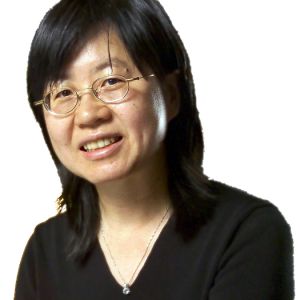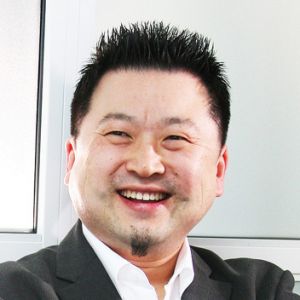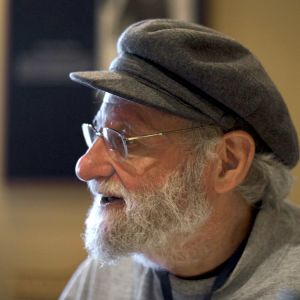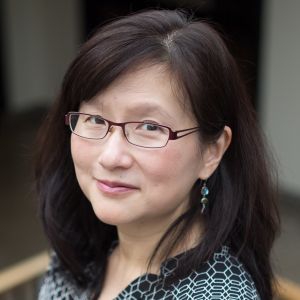Editor in Chief

Panos Papalambros
Panos Y Papalambros, PhD, PE, is the James B. Angell Distinguished University Professor Emeritus, the Donald C. Graham Professor Emeritus of Engineering and Professor Emeritus of Mechanical Engineering at the University of Michigan, Ann Arbor. He also holds emeritus faculty appointments in the College of Architecture and Urban Planning and the School of Art and Design. He holds a diploma in mechanical and electrical engineering from the National Technical University of Athens, and M.S. and PhD degrees in mechanical engineering from Stanford University. He has co-authored the textbook Principles of Optimal Design: Modeling and Computation (1988, 2000, 2007). He is a Fellow of the Design Society, ASME, and SAE; and the recipient of the JSME Systems and Design Achievement Award, ASME Design Automation, ASME Machine Design, ASME Spira Outstanding Design Educator, ASEE Ralph Coats Roe Awards, and ASME Ben C. Sparks Medal. He is a member of the US National Academy of Engineering and a past president of the Design Society.
Co-Editor in Chief

Jonathan Cagan
Jonathan Cagan, PhD, PE, is the George Tallman and Florence Barrett Ladd Professor in Engineering, Department of Mechanical Engineering, at Carnegie Mellon University, with appointments in the School of Design and Computer Science. He co-directs the Integrated Innovation Institute and Master of Integrated Innovation for Products and Services at CMU and serves as the Director of Innovation and Entrepreneurship for the College of Engineering. Prof. Cagan is an expert in product development and innovation methods for early stage product development. His research focuses on design cognition, computation, and practice. He is the author of over 200 peer-reviewed research publications, and the co-author of three books: Creating Breakthrough Products, Built to Love, and The Design of Things to Come. He is a Fellow of ASME.

Anja Maier
Anja M Maier, PhD, is Professor of Engineering Systems Design and Head of Department Design, Manufacturing and Engineering Management at the University of Strathclyde, Glasgow, UK and also at DTU-Technical University of Denmark, where she was Head of Engineering Systems Design, Department of Technology, Management and Economics. She holds a PhD degree in Engineering Design from the University of Cambridge, UK, and a Master’s of Arts degree in political science, communication science, and philosophy. Her research focuses on engineering systems design, with a particular emphasis on complexity and human behaviour. This includes design communication, network-based modelling and analysis in design, and design cognition. Prof. Maier serves on the Board of Management of The Design Society, on the Editorial Board of the Journal of Engineering Design, as Associate Editor of the journal Design Science, is a member of the International Council on Systems Engineering, a Fellow of the Cambridge Philosophical Society, a Board member of the Copenhagen Center for Health Technology (Cachet), and a member of acatech - the National Academy of Science and Engineering, Germany and a member of the ATV – the Danish Academy of Technical Sciences, Denmark. She works in close collaboration with industry and public organisations, predominantly in cleantech and healthcare, and has worked as a technical consultant in the manufacturing and software industries.
Editorial Assistant

Rachael Hamilton
Rachael Hamilton is a Senior Administrative Assistant at the College of Engineering’s Integrative Systems + Design group at the University of Michigan, Ann Arbor. She earned her B.A. in English from the University of Michigan in 2005 and has worked with the University since then, gaining editorial experience by assisting with the Stapp Car Crash Conference® and Journal. Additionally, she holds a part-time faculty position at Washtenaw Community College teaching developmental English, composition, and business writing
Technical Coordinator
Associate Editors

Saeema Ahmed-Kristensen
Saeema Ahmed-Kristensen, PhD, joined Exeter (based in London) as a co-director of INDEX, and is the DIrector of DIGITLab an UKRI £12.M Centre, she moved from the Royal College of Art, where she was a Professor and Head of Design Products. She was formerly Deputy Head, and Professor (Design Engineering and Design Methodology) at the Dyson School of Design Engineering, Imperial College London. She was a Professor at the Department of Management Engineering, Technical University of Denmark and led the Design, Engineering and Innovation Research Section. She conducted her PhD at the Mechanical Engineering Dept. at the University of Cambridge, where she was also an Engineering fellow of Edward Murray College. Her research interests focus on engineering design to develop tools and methods that improve design synthesis, creativity, support global product development and provide decision support throughout a product’s lifecycle. She has over 100 reviewed publications and works in close collaboration with industry, from aerospace, oil drilling equipment, medical devices, to consumer products such as headsets. A multidisciplinary approach including computer science, engineering, and psychology is adopted to research.

Albert Albers
09/1983 Studies in Mechanical Engineering, University of Hannover, Germany, Graduation with distinction 11/1987 Doctoral degree in Mechanical Engineering (summa cum laude), University of Hannover, Germany (Prof. Dr.-Ing. E.-G. Paland) 10/1986 - 12/1988 Position as Senior Engineer at the Institute of Machine Elements and Engineering Design at the University of Hannover 04/1987 - 12/1988 Member of the Academic Council 01/1989 - 12/1995 Joined LuK GmbH & Co. OHG, Bühl (Germany), a leading manufacturer of clutch systems, torsional vibration dampers and gear systems in the automotive industry Resigned in 1995 as Head of Product Development Department for clutch systems and torsional vibration dampers and deputy member of the executive board Since 01/1996 Professor for Mechanical Design and Product Engineering as well as Head of IPEK – Institute of Product Engineering at Karlsruhe Institute of Technology (KIT) 1998 - 2004 Deputy Head of Institute of Ceramics in Mechanical Engineering at the University of Karlsruhe Since 2005 Honorary Doctorate of the Technical University Baku, Azerbaijan Member of acatech – National Academy of Science and Engineering Member of the Board of Trustees of Offenburg University 2006 - 2014 Member of the Advisory Board of Freudenberg New Technology SE & Co Since 2006 Member of the American Society of Mechanical Engineers (ASME) Since 2007 Visiting Professor at Chinese German Graduate School (CDHK) of Tongji University in Shanghai Since 2008 Visiting Professor at Shanghai Jiao Tong University (SJTU) 2008 - 2024 President of the Allgemeiner Fakultätentag AFT e. V., the German General Faculty Association Since 2011 Founding member and former Chairman of the Scientific Association for Product Engineering (WiGeP) Since 2015 Spokesman and Review Board Member of the DFG Review-Board 402 (Mechanics and Constructive Mechanical Engineering) Since 2015 Member of the Advisory Board of the Design Society Since 2015 Executive director of the KCT – KIT Campus Transfer GmbH 2016 Schaeffler FAG Foundation Honorary Award 2016 for excellent accomplishments and expertise in science, research and education in technical and scientific areas Since 2017 Deputy spokesman of acatech – National Academy of Science and Engineering Since 2018 Member of the Advisory Board of Leichtbau BW GmbH: Agency for Lightweight Construction Baden-Wuerttemberg Since 2018 Member of the Advisory Board of twopillars Since 2019 Member of the National Platform Future of Mobility (NPM) Working Group 2: Alternative Propulsion Systems and Fuels for Sustainable Mobility Since 2020 Spokesman of the thematic network Product Development and Production of acatech - German Academy of Science and Engineering Since 2020 Member of the technical committee VDI/VDE-GMA 7.10 "Planning and development of hybrid service bundles" Since 2020 Member of the Advisory Board “VDI-GPP FB7 Product Development and Mechatronics” Since 2023 Member of the Board of Trustees of the Center for Applied Cultural Studies and Studium Generale at the Karlsruhe Institute of Technology

Petra Badke-Schaub
Dr. Petra Badke-Schaub (PhD 1992, Bamberg University, ‘Groups and complex problem solving’) is a professor for Design Theory and Methodology since 2004 at the TU Delft, NL, prior to which she held academic positions at the Institute of Theoretical Psychology at Bamberg University, and was a member of the Max-Planck-Project Group ‘Cognitive Anthropology’ in Berlin from 1991 till 1993. As Head of the section Design Theory and Methodology, her group is doing design research and provides education in the Bachelor and Masters on all aspects of the design process related to the designer. With her background as a psychologist, she integrates topics such as creativity, cognitive conflicts and reflection into a theoretical framework “Human Behavior in Design” what comprises analysis and explanation of design behavior in context and ask from there the question how to support the designer.

Jean-François Boujut
Jean-François Boujut, PhD, is a Professor of Engineering Design at Grenoble Institute of Technology (Grenoble INP). He is a member of the academic staff of the Industrial Engineering School of Grenoble INP and holds the responsibility of the innovation and creativity courses. He is a former student of the Ecole Normale Supérieure de Cachan (France) and holds an Agrégation of Mechanical Engineering and a M.S. degree from University Paris 6. He earned his PhD in 1993 in Mechanical Engineering and his Habilitation in 2001 in the same discipline. He is a former member of the advisory board of the Design Society.

Amaresh Chakrabarti
Amaresh Chakrabarti is a Professor of Engineering Design at Centre for Product Design and Manufacturing, Indian Institute of Science (IISc), Bangalore. He holds a BE in Mechanical Engineering (Indian Institute of Engineering Science and Technology, Shibpur),a ME in Mechanical Design (IISc), and a PhD in Engineering Design (University of Cambridge, UK). He co-authored DRM, a methodology used widely as a framework for doing engineering design research. He is Associate Editor, AI EDAM, Area Editor, Research in Engg Design, Regional Editor, Journal of Remanufacturing, and held Advisory Editorships for 9 International Journals. He founded IDeASLab – the first laboratory in India for research into design. He is Programme chair for ICoRD – the first international design research conference series in India. He is Honorary Fellow, Institution of Engineering Designers, UK, and recipient of Jawaharlal Nehru Cambridge Pre-doctoral Fellowship (1987) and UK MG MIAA Commendation Award (1994). Seven of his papers won top paper awards in international conferences.

Lin-Lin Chen
Lin-Lin Chen is a professor in the Department of Industrial and Commercial Design at National Taiwan University of Science and Technology (NTUST) and Chair of Design and Realization of Intelligent Systems at the faculty of Industrial Design at Eindhoven University of Technology (TU/e) in the Netherlands. She received a BS degree from National Cheng Kung University in Taiwan and a PhD from the University of Michigan at Ann Arbor. She was Dean of the College of Design at NTUST from 2004 to 2010, President of the Chinese Institute of Design from 2007 to 2008, and convener for the arts (and design) area committee of Taiwan’s National Science Council from 2009 to 2011. She is the founding Editor-in-Chief of the International Journal of Design (SCI, SSCI, AHCI), Vice President of the International Association of Societies of Design Research (IASDR), and Fellow of the Design Research Society. Her research focuses on product aesthetics, design innovation, interactive interface design, and geometric algorithms.

John Clarkson
John Clarkson is Professor of Engineering Design at the University of Cambridge and Professor of Healthcare Systems at Delft Technical University. He is also Director of the Cambridge Engineering Design Centre and Co-Director of Cambridge Public Health. He holds a degree in electrical engineering and PhD in electrical machines from the University of Cambridge and an honorary doctorate from KU Leuven. As well as publishing over 800 papers, he has written and edited a number of books on medical equipment design, inclusive design, and process management. He is a Fellow of the Royal Academy of Engineering, the Institution of Engineering and Technology and the Institution of Engineering Designers, and an international member of the Royal Swedish Academy of Engineering Sciences.

Fred Feinberg
Fred M. Feinberg is Handleman Professor and Department Chair of Marketing at the Ross School of Business, and Professor of Statistics, Department of Statistics, University of Michigan. He earned SB degrees in Mathematics and Philosophy and a doctorate in Quantitative Marketing, all from MIT, and was previously on the faculties of Duke University and the University of Toronto. His work focuses on using statistical models to explain complex decision patterns, particularly involving issues in Product Design Optimization, using methods from discrete choice, behavioural decision theory, Bayesian econometrics, and dynamic programming. He is Departmental Editor at Production and Operations Management, former Co-Editor of Marketing Science, and Associate Editor at Journal of Marketing Research. With Tom Kinnear and Jim Taylor, he is the author of Modern Marketing Research: Concepts, Methods, and Cases. He currently serves as President of the INFORMS Society of Marketing Science.

Ashok Goel
Ashok K. Goel is a Professor of Computer Science and Human-Centered Computing in the School of Interactive Computing at Georgia Institute of Technology in Atlanta, USA. He is the Director of the School’s Design & Intelligence Laboratory and a Fellow of Georgia Tech's Brooke Byer's Institute for Sustainable Systems. For over thirty five years, Ashok has conducted research into artificial intelligence and cognitive science with a focus on computational design and creativity, especially analogical design and biologically inspired design. In 2014, he co-edited a volume on Biologically Inspired Design published by Springer-Verlag. From 2008 to 2018, he was a Co-Director of Georgia Tech's Center for Biologically Inspired Design, and from 2012 to 2017 he served on the Board of Directors of The Biomimicry 3.8 Institute. He has served on the Editorial Board of AIEDAM since 1997 including as an Associate Editor from 2011 to 2017. From 2015 to 2020, he was an Associate Editor of Design Society's Design Science Journal. He is a Fellow of AAAI and the Cognitive Science Society.

Sean Hanna
Sean Hanna is Professor of Design Computing at the Bartlett School of Architecture, and a member of the UCL Space Syntax Laboratory, recognised as one of the UK’s highest performing research groups in the field of architecture and the built environment in consecutive UK Research Assessment Exercises. His research is primarily in developing computational methods for dealing with complexity in design and the built environment, including the comparative modelling of space, and the use of machine learning and optimisation techniques for the design and fabrication of structures, and he maintains close design industry collaboration with world leading architects and engineers (e.g. Foster + Partners), artists (e.g. Antony Gormley) and technology producers (e.g. Autodesk).

Yong Se Kim
Yong Se Kim is a Professor of Product Service System Design, College of Design and Innovation, Tongji University in Shanghai, China. He received his PhD in Mechanical Engineering with a minor in Computer Science in the Design Division of Stanford University in 1990. He also received his MS degree at Stanford. He received his BS in Mechanical Engineering from Seoul National University, Korea in 1983. He taught at the University of Illinois at Urbana-Champaign ,1990 – 1997, and at the University of Wisconsin-Milwaukee, 1997 – 2000 as an Assistant Professor and an Associate Professor, respectively. He was a Professor at Sungkyunkwan University, 2000 - 2021 and at the University of Turku, 2022 - 2024. Yong Se Kim has served the full 12 year term as a member of the Advisory Board (2011 - 2023) and is currently a member of the Steering Committee of the Product-Service Systems SIG at the Design Society.

Terry Knight

Chris McMahon
Chris McMahon, FDS, FIMechE, HonFIED is retired Professor of Engineering Design and part-time Senior Teaching Fellow and Research Fellow in the Department of Mechanical Engineering at the University of Bristol. After an early career in the railway and automotive industries, Chris’s academic career at the Universities of Bath, Bristol and the technical University of Denmark has involved a strong emphasis on design education and on research interests in computer-aided design, design methods and tools, information management, materials in design, and eco-design. He is co-author of CADCAM, Principles, Practice and Manufacturing Management (1992, 1998), editor of several research proceedings and author of a number of papers in conferences and journals. From 2010-13 he was President of the Design Society. He is a Fellow of the Design Society, Fellow of the Institution of Mechanical Engineers, Honorary Fellow of the Institution of Engineering Designers and a member of the editorial boards of a number of design journals.

Yukari Nagai
Yukari Nagai is the Dean Professor at the School of Knowledge Science, Professor of the Research Center for Innovative Lifestyle, and Director of the Design Creativity Research Unit at the Japan Advanced Institute of Science and Technology (JAIST). She earned a Doctor of Philosophy degree from Chiba University and obtained her PhD in Computing Sciences from the University of Technology, Sydney. Her research interests are the “human aspect of creativity,” which includes cognition and morality, and the “social aspect of creativity,” which includes innovation, culture, and ethics. She believes that discussing the meanings of design will help clarify both aspects. Understanding people’s motivations in working with arts is a key model for her deep insights into design creativity. Currently, she is a Leader of the Special Interest Group of Design Creativity at The Design Society, an Advisory Board Member of the Design Society, a Fellow of Design Research Society, and Editor-in-Chief of International Journal of Design Creativity and Innovation (Taylor & Francis).

Don Norman
Don Norman is Distinguished Professor (emeritus) and Founder and first Director of the Design Lab at the University of California, San Diego as well as co-founder and first chair of the Cognitive Science Department and prior to that, chair of Psychology. He has been a Vice President of Advanced Technology at Apple and an executive at HP. He is co-founder and principal of the Nielsen Norman group, a member of the National Academy of Engineering, fellow of the American Academy of Arts and Sciences, Cognitive Science Society, ACM, Human Factors and Ergonomics Society and the Design Research Society. He has served on numerous company boards, has honorary degrees from Delft, Padua, and San Marino, the lifetime achievement award from ACM’s Computer-Human Interaction group, and the President’s lifetime achievement award from the Human Factors and Ergonomics Society. He has received the Sir Misha Black Medal for distinguished service to design education from the Royal Commission for the Exhibition of 1821, London, UK, the Design Guru Award from The Institute of Design, JK Lakshmipat University, Jaipur India. He is currently an advisor and honorary Professor of Design at Tongji University (Shanghai) and on the Advisory board for the School of Design at Hong Kong Polytech. He was a distinguished visiting professor at the Korean Advanced Institute of Technology (KAIST) for three years. He has published 20 books translated into 20 languages including Emotional Design and Design of Everyday Things. His book “Four Design Maxims to Change the World” will be published in mid to late 2022.

Yoram Reich
Yoram Reich is the Engineering Design and Systems Engineering Chaired Professor at the School of Mechanical Engineering, Tel Aviv University. He practiced engineering design for more than 7 years; he worked as a researcher or visiting professor at Carnegie Mellon University, Duke University, and Stanford University. He served several years as a board member and two years as the Chair of the Israeli Chapter of Society of Manufacturing Engineers (SME). Coauthored and coedited four books on design, biomimicry, and sustainable communities, and more than 250 papers; he is Editor-in-Chief of Research in Engineering Design and senior editor/board member of eight additional academic journals. He heads Tel Aviv University, Systems Engineering Research Initiative, and the MSc Program in Systems Engineering at Tel Aviv University. Prof. Reich is a co-founder and past co-chair of the Design Theory special interest group of the Design Society and a former member of its Advisory Board. Prof. Reich is an Honorary Fellow of INCOSE-IL, a Fellow of the Design Research Society, and a member of the Design Society and INCOSE.

Stephan Rudolph

Kristi Schmidt Bauerly
Kristi E. S. Bauerly, PhD, is a human factors engineer on Apple Inc.’s Industrial Design team in Cupertino, California. She holds a B.S.E. degree in industrial engineering with a focus in human factors from The University of Iowa and M.S.I.E. and PhD degrees in industrial and operations engineering specializing in ergonomics from the University of Michigan, Ann Arbor. Since 2006, she has worked with the industrial design team at Apple to optimize hardware user experience.

Steven Smith
Steven M. Smith is a Professor of Psychology at Texas A&M University, and is one of the founding members of the Creative Cognition group there. Dr. Smith's interdisciplinary work, which bridges his research on creative cognition with creative engineering design, business, patent law, and computer science, has dealt with creative conceptual design in engineering, and with information discovery in computer science, and has been supported by the National Science Foundation. He has given invited addresses on creative cognition research around the world, including England, France, Spain, Ireland, Colombia, The Netherlands, Japan, and China. His experimental work on context-dependent memory influenced memory enhancement techniques that are used forensically to enhance eyewitness memory, and he has served as an expert on eyewitness memory in numerous legal cases. Dr. Smith is the author of more than 100 articles in cognitive psychology, and his books include Creative Cognition: Theory, Research, and Applications (1992), The Creative Cognition Approach (1995), Creativity and the Mind: Discovering the Genius Within (1995), and Creative Thought: An Investigation of Conceptual Structures and Processes (1997).

Mitchell TSENG
Mitchell M. Tseng is the Chair Professor and Director of Advanced Manufacturing Institute at the Hong Kong University of Science and Technology. He also holds faculty appointments in MIT Zaragoza Logistics Center and School of Design, China Academy of Arts. He started his career in developing key enabling manufacturing technologies for computer industry, some of which, including the diamond machining for polygons in laser printers, are still widely used. He has been working closely with industry with more than 100 projects to help companies upgrading product design and manufacturing capabilities. He published more than 200 scholarly papers, case studies, and three books. He is an elected Fellow of the International Academy of Production Research (CIRP), American Society of Mechanical Engineers (ASME) and Hong Kong Academy of Engineering Sciences (HKAES). He is the recipient of LEAD Award from SME, Franz Edelman Laureate (INFORMS), and Outstanding Industrial Engineer (Purdue). He and Prof. Frank Piller co-founded International Mass Customization and Personalization Conference, a premium bi-annual international conference bringing together academic and industry leaders in the field.

Pieter Vermaas

Sandro Wartzack

Kristin Wood
Dr. Kristin L. Wood completed his M.S. and Ph.D. degrees in the Division of Engineering and Applied Science at the California Institute of Technology, where he was an AT&T Bell Laboratories Ph.D. Scholar. Dr. Wood joined the faculty at the University of Texas in September 1989 and established a computational and experimental laboratory for research in engineering design and manufacturing, in addition to a teaching laboratory for prototyping, reverse engineering measurements, and testing. During the 1997-98 academic year, Dr. Wood was a Distinguished Visiting Professor at the United States Air Force Academy. Through 2011, Dr. Wood was a Professor of Mechanical Engineering, Design & Manufacturing Division at The University of Texas at Austin. He was a National Science Foundation Young Investigator, the Cullen Trust for Higher Education Endowed Professor in Engineering, University Distinguished Teaching Professor, and the Director of the Manufacturing and Design Laboratory (MaDLab) and MORPH Laboratory. After UT Austin, Dr. Wood was the Associate Provost for Graduate Studies, a Professor of Engineering and Product Development (EPD, epd.sutd.edu.sg), founding EPD Head of Pillar, and Co-Director of the SUTD-MIT International Design Center (IDC, idc.sutd.edu.sg) at the Singapore University of Technology and Design (SUTD, sutd.edu.sg). Dr. Wood Dr. Wood has published more than 500 refereed articles and books, has received more than 100 national and international awards in design, research, and education, consulted with more than 100 companies (MNCs, SMEs, and startups) and government organizations on Design Innovation and Design Thinking, and is a Fellow of the American Society of Mechanical Engineers (ASME).

Maria Yang
Maria Yang is Professor of Mechanical Engineering at MIT, and is founder and director of the Ideation Lab (ideation.mit.edu). Her research centers on the understanding the impacts of preliminary, ambiguous phases of the design process of both products and complex engineered systems. She is a Fellow of the American Society of Mechanical Engineering and has received the National Science Foundation CAREER award and the American Society of Engineering Education Merryfield Design Award. She earned her SB from MIT, her MS and PhD from Stanford University, all in Mechanical Engineering. Yang previously served as Director of Design at Reactivity, a Silicon Valley startup now a part of Cisco Systems.

Bernard Yannou
Bernard Yannou, PhD, is a Professor of Design and Industrial Engineering in Ecole Centrale Paris (ECP). Deputy-director of Industrial Engineering Lab., he is in charge of the IE M. S. and the last-year Innovative System Design & Development curriculum. He holds a M. S. in mechanical engineering from Ecole Normale Supérieure de Cachan (ENSC), a M. S. of computer Science from Paris-6 University and a PhD from ENSC. He conducted research for a number of industrial companies: Dassault Systemes, Renault, Schlumberger, Johnson Controls, Airbus, Eurocopter, Safran, Bouygues Construction, Schneider Electric. He coordinated eight textbooks in French language on design and innovation of industrial products. He is member of the Advisory Board of the Design Society, member of the ASME and Associate Editor of the Journal of Mechanical Design and Int. Journal of Design Creativity and Innovation. Areas of interest: design automation, innovation engineering, eco-design.
